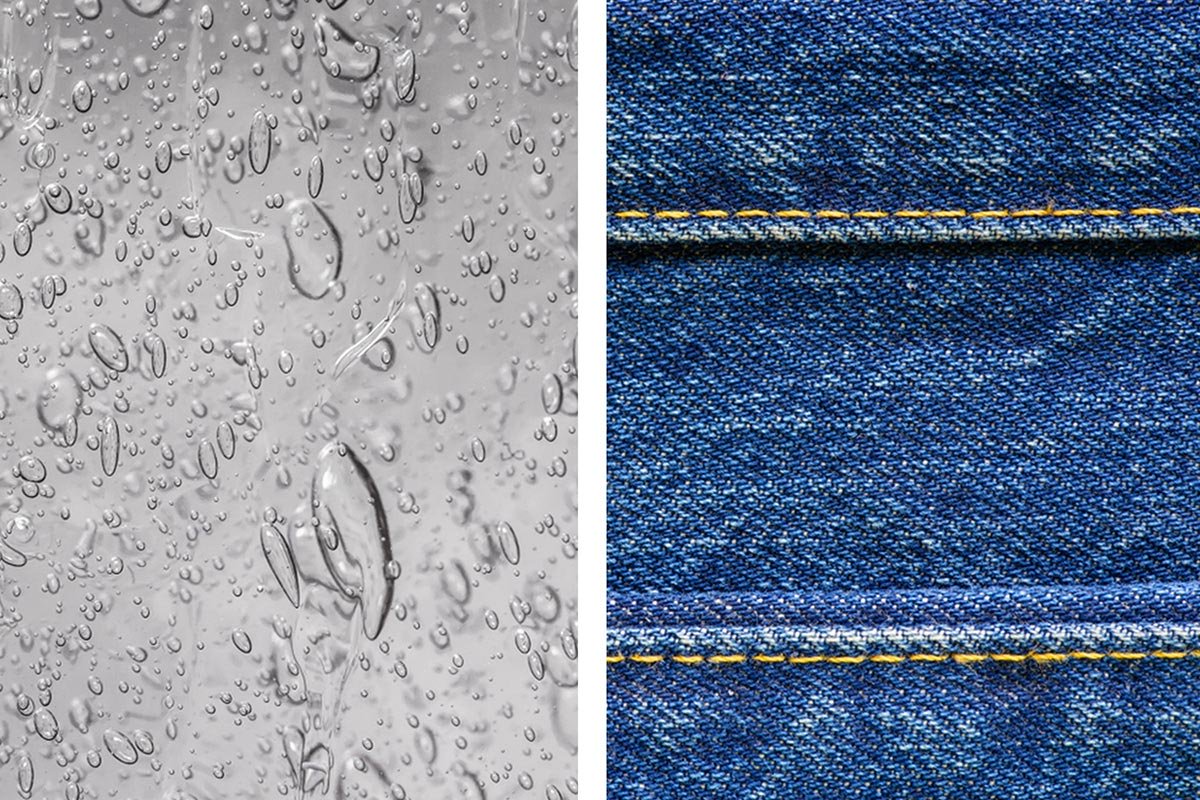Keeping Up With The News Is Bad For Your Health. Stopping Will Make You Happier.
Keeping up with the news is bad for your health.
Why ? Because it generates in you fear and of aggressiveness.
It also hinders your sense of creativity and your ability to think.
The solution ? Simply stop reading, listening to or watching the news broadcast by the media.
Think about it: in the last 12 months you have surely read thousands of news in the media.
But has that got you Actually helped make better decisions in your personal life?

News is toxic candy for your mind
Over the past 20 years, the lucky ones among us have understood the dangers of too much food (obesity, diabetes, etc.).
As a result, many people have chosen to change their eating habits.
But many of us still have a hard time understanding that current affairs are to our minds what sugar is to our bodies.
Like sweets, news is easy to digest. This is normal, because the media handpick the news.
They intentionally choose trivial information : information which has no relation to our life and which does not encourage us at all to think or think for ourselves.
It is precisely because this information is superficial that our mind does not succeed. never to saturation.
Unlike books, articles provided or long reports that lead us to think, we can swallow news in infinite quantities.
It's like this info is brightly colored candies, pleasant to swallow, but toxic candy for our mind.
Today, our mind maintains the same relationship with the news that our body had with overeating in the 90s.
It is only now that we truly understand the danger posed by news transmitted non-stop by the media.
Why is keeping up with the news bad for you? Here are the 10 reasons everyone should know:
1. News is misleading us

Take as an example the event described by the philosopher Nassim Taleb in his bestseller The Black Swan. A car crosses a bridge, and the bridge collapses.
What will the media focus on? The car. The person driving that car. Where the person came from. The place she had planned to go. How this person felt when the bridge collapsed (in case they survived the crash).
But all this information is superfluous. What is really important? What is essential in this story is the structural stability of the bridge.
In other words, what is relevant is the underlying risk of this bridge, a risk of collapse that could well and truly be lurking in other bridges.
But, for the media, focusing on the car is much more selling. It's more flashy, more dramatic. And in addition, it implies a human person. It is information that is easy to convey and easy to produce.
This is precisely the modus operandi of the vast majority of the media. The news they choose to broadcast lead us to misjudge the risks of the world in which we operate on a daily basis.
Some concrete examples to see more clearly:
• Terrorism is grossly overestimated. But chronic stress is undervalued.
• The financial crisis is overvalued. But financial irresponsibility is undervalued.
• Astronauts are overrated. But nurses are undervalued.
The problem is, our minds don't have the lucidity to absorb news from the media objectively.
For example, if you watch a video of a crashing plane on TV, there is a good chance that it changes your behavior the next time you fly.
And this, even if the probability that it happens to you is actually very small.
And if you think you're strong enough not to let the news influence you, you are wrong !
Even bankers and economists - who have every interest in not allowing themselves to be manipulated by the media - have shown that they too are largely influenced by current events.
The latest financial crisis is a perfect example!
So what to do? There is only one solution: disconnect totally information disseminated by the media.
2. News brings nothing to your life

Of the 10,000 news items that you have "consumed" in the past 12 months, try to name one that has actually helped you make a better decision about your life or career.
That is what I thought ! The point is, news doesn't add anything to our lives.
But the problem is, a lot of people have a hard time distinguishing what is important and what is not.
Indeed, it is much easier to recognize what is "new"of what is important.
Knowing how to distinguish what is important from what is simply new is an increasingly important problem in our society.
The media want you to believe that keeping up with the news gives you kind of competitive advantage compared to other people who don't follow them.
Unfortunately, many of us fall into this trap ... Indeed, we become anxious as soon as we are disconnected from the constant flow of news.
In reality, following the news is a competitive disadvantage. Why ? Because the less news you consume, the more you improve your well-being!
3. News never explains the real cause of events

We can compare the news to bubbles that burst on the surface of the water. These bubbles do exist, but they do not reveal the complexity of the world below.
Is it really by accumulating news facts that you will better understand the complexity of this world?
Unfortunately, The answer is no. In fact, it is exactly the opposite.
News topics that are really important are not even covered by mainstream media.
Why ? Because these are long and powerful movements that are developing under the radar of journalists. However, it is these movements that have the power to transform society.
In fact, the more news you consume and digest, less you will have a global vision of this world.
If it was following as much news as possible that was really the key to success then, logically, journalists would be at the top of the social pyramid for a long time.
However, this is obviously far from being the case.
4. News is toxic to your body

The news works all the time on your limbic system, also known as the "emotional brain".
Because of the stressful information that we constantly receive, the brain secretes glucocorticoids in large quantities, especially cortisol.
As a result, it completely disrupts our immune system and reduces the production of many growth hormones.
In other words, our body ends up in a state of chronic stress.
Be aware that a high level of glucocorticoids in the body also disrupts the proper functioning of the digestive system.
They also slow down our growth (cell, hair and bone growth), increase our nervousness and make us more vulnerable to infections.
Other known side effects include fear, aggression, loss of peripheral vision and desensitization.
5. News skews our understanding of the world

Keeping up with the news is also the best way to accentuate what is called confirmation bias.
What is confirmation bias? Billionaire Warren Buffet has defined this weakness of the human spirit very well:
“If there's one thing man is good at, it's in his ability to interpret any new information in such a way that it dovetails perfectly with his previous conclusions. "
The news in the media only exacerbates this weakness that we all share.
Because of this confirmation bias, we feel like everything we read, see or hear is just confirmations. of what is believed to be the truth.
As a result, we have even more the impression of having the truth, we take stupid risks and we miss great opportunities.
And that's not all. Keeping up with the news also increases the risk of another cognitive disorder: the distortion of reality.
Indeed, our brain is constantly looking for news facts that "confirm our own logic", even if these stories do not correspond at all to reality or are even edited from scratch. You know, those famous "fake news" which abound in the media, especially on the Internet ...
6. News decreases our ability to think

To think and reflect, you need to be able to concentrate. And to concentrate, you have to have time for yourself WITHOUT being interrupted.
However, newspapers or other news alerts are precisely designed to interrupt you all the time.
They are like viruses that divert our attention to use them for their own ends.
In reality, the news means that we can no longer take the time to think.
We become simple receivers, without any capacity to analyze what we swallow on a daily basis.
But the problem is even worse, because the news also seriously disturb our memory.
Our brain has 2 types of memory: long term memory and short term memory.
If the storage capacity of our long-term memory is almost infinite, that of our short-term memory is much more limited. Indeed, this is limited to a reduced amount of information.
The concern is that in order to transform short-term memory into long-term memory, information has to go through a "bottleneck."
However, to really understand and analyze information, it must go through this passage.
Unfortunately, as soon as this passage is occupied by the news, for example, nothing can pass and be assimilated by our brain!
And it is precisely because news disturbs our concentration that it subsequently diminishes our ability to understand things.
It is in fact the same operation as when we read a text on the Internet.
Indeed, according to a recent study, the understanding of an article on the Internet decreases according to the number of links it contains.
Why ? Because every time our brain sees a link in a text, it has to decide whether or not to click on that link.
This choice which the brain must make is in fact a distraction which interrupts the analysis of the text.
So don't forget. The news is designed in the same way as these links. Its purpose is to interrupt you and divert your attention.
7. News works like a drug

When a news item interests us, we want to know what will happen next. Is the murderer going to be arrested? Is this or that politician going to be put in prison or not?
And with the hundreds of news items that occupy our minds, this urge to know what will happen next becomes more and more powerful and more and more difficult to control.
Previously, researchers believed that the connections between the billions of nerve cells in our brains were frozen before we reached adulthood.
But we now know that this is not the case. This is because the connections between nerve cells can break and form new ones.
Also, the more news we consume, the more we strengthen the neural circuits associated with assimilation. superficial informations.
And at the same time, the more news we consume, the more we destroy the circuits associated with reading and thinking. deep.
Most people who consume the news regularly have therefore lost the ability to digest the content of long articles and books.
After 4 or 5 pages, they drop out. They start to tire, they can no longer concentrate and they become restless.
And it's not because these people have aged. It's because the very structure of their brain has undergone modifications.
8. Keeping up with the news is a waste of time

If you read the newspaper for 15 minutes every morning, then follow the news on your smartphone for 15 minutes during your lunch break ...
And, before going to bed, you take another 15 minutes to look at the 8 p.m. newspaper.
Add 5 min here and there when you are at the office, in total you lose at least half a day a week to follow the news!
Not to mention the time it takes to refocus after each distraction.
Today, we are overwhelmed by information. It is no longer a scarce commodity, as it used to be.
On the other hand, which has become rare, it is our attention or, in other words, our ability to only focus on one thing at a time.
If you read comment-economiser.fr regularly, I'm sure you care about your money but also your health.
So why neglect what feeds your brain?
9. News makes us passive

Yes, it is normal that the news makes us all passive. Why ? Because the news deals in particular with things on which we have no no influence.
And unfortunately the daily repetition of information on which we cannot act always makes us more passive.
The media hammer us with their news, until we take a pessimistic, desensitized, sarcastic and fatalistic view of our reality.
This is the phenomenon that psychologists call learned helplessness.
This may be a bit of a stretch, but I wouldn't be at all surprised if keeping up with the news all the time didn't contribute, at least partially, to a disease that is very common in our societies, I have named the depression.
10. News kills creativity

Things that are familiar to us, which are not unique in our daily life, hamper our creativity.
This is one of the reasons why mathematicians, novelists, composers and entrepreneurs produce their best works when they are young.
At that age, their brains are still virgin. It's a large, unoccupied space that encourages them to find and pursue new ideas. They open up and set off to discover unknown subjects.
I don't know a single person who is really creative AND at the same time who is also a news addict: not a single writer, composer, mathematician, physicist, musician, architect or painter ...
On the other hand, I know a hell of a lot of people who are sorely lacking in creativity and who consume information like drugs!
If you are looking for old ways to solve your personal or professional problems, then keep following the news.
But if you are looking for new solutions and more effective ideas, then ditch the news in the media.
Conclusion
Of course, society needs journalism, but journalism that works differently.
I am thinking in particular of investigative journalism, which always proves to be very useful in shedding light on the real problems of our societies.
We have a cruel need for this type of journalism which monitors our institutions and which reveals the truth, which knows how to work on the substance of the subjects, without material or temporal pressure.
Why limit yourself to newspapers and newsletters to learn more about important advances in our society?
Long magazine articles and books that get to the bottom of things are always much more interesting and relevant.
It's been 4 years now that I haven't been following the news at all.
Today, I can see, feel and share with you the benefits of this decision that freed my mind: I experience a lot less interruptions in everything I do on a daily basis.
I feel much less anxiety than before. I have more free time available. And I also think I am more lucid about the life around us.
Obviously, it's far from easy, but trust me, it is really worth it! :-)
It's your turn to speak…
Have you ever tried to reduce the amount of news you consume on a daily basis? Tell us in the comments if you feel happier. We can't wait to hear from you!
Do you like this trick ? Share it with your friends on Facebook.
Also to discover:
The 10 Benefits of Reading: Why You Should Read Every Day.
10 Good Reasons To Stop Checking Facebook All the Time.










